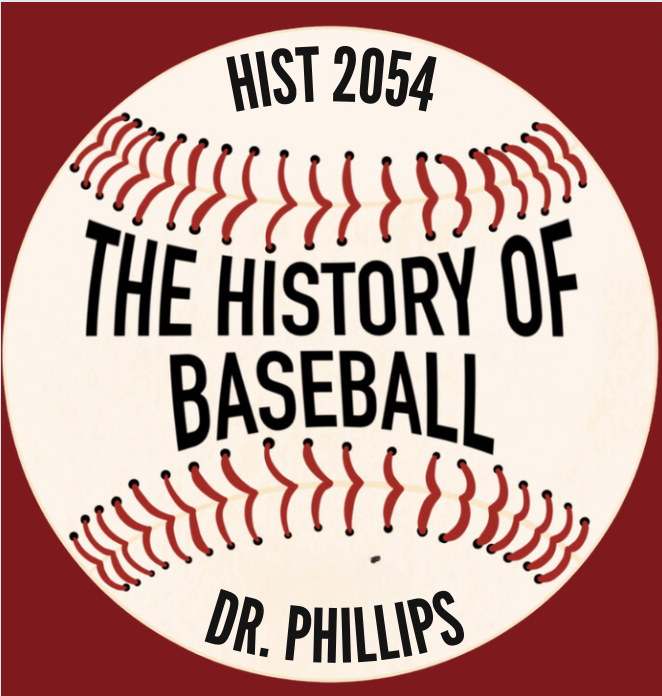Dr, Christopher Phillips
As both a game and sport, baseball provides a window into the complex history of American society and culture. This course examines the game’s origins in the Civil War era, the postwar development of professional baseball, the early creation of baseball leagues, the business of baseball in the Gilded Age, Progressive era baseball scandals, class relations, labor relations, and race relations.
The course examines the history of the game itself and emphasizes how baseball has shaped American society and, in turn, how American society has shaped baseball. Baseball tells the story of American democracy and progress and of the conflicts that have arisen: rural versus urban, labor versus capital, civil rights versus racial segregation, and the struggles over urbanization, suburbanization, and globalization. As students learn about the sport, they will learn about race, class, gender, and politics in the American context. Exciting pennant races, mammoth home runs, thrilling no-hitters, and feats of impressive athletic skill are a part of the course. But it is neither founded on baseball trivia, coaching, playing fundamentals, or strategies.
The course will focus on how baseball’s history highlighted many of the prominent promises, perils, and paradoxes inherent in American history. The story of baseball can help us better understand the story of the United States, where it has been, where it is, and where it might go. We will examine the game’s history through important individuals (Albert Spaulding, Ty Cobb, Charles Comiskey, Babe Ruth, Lou Gehrig, Branch Rickey, Jackie Robinson, Mickey Mantle. Sandy Koufax, and Pete Rose). Still, the course is not one driven by biography. The course deals with baseball’s role and significance in American society over the past 150 years and the history of the game itself.
Major topics studied are “Origins of Sport,” “The Amateur Clubs in the Urban North,” “Professionalism and the National Pastime,” “Gambling and Corruption,” “Troubles of Big Business,” “Babe Ruth and the Progressive Era through the 1920s,” “Baseball and the Great Depression,” “Nisei Baseball during World War II, “Baseball and the African American Experience,” “The Negro Leagues,” “The All-American Girls Professional Baseball League,” “Jackie Robinson and Desegregation,” “Baseball and Post War America: 1950s-1960s,” “Free Agency,” “Roberto Clemente and the Latinization of Baseball,” “Baseball and America in the 1970s and 1980s,” “Baseball on Film,” and “Steroids and the Neo-Liberal Era.”
